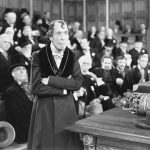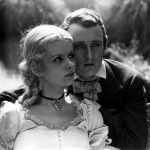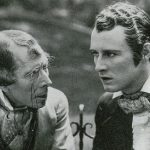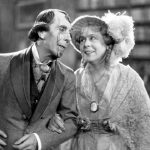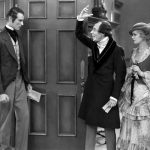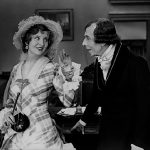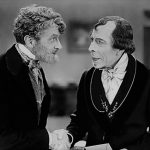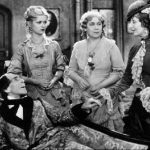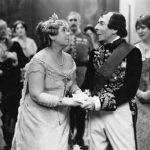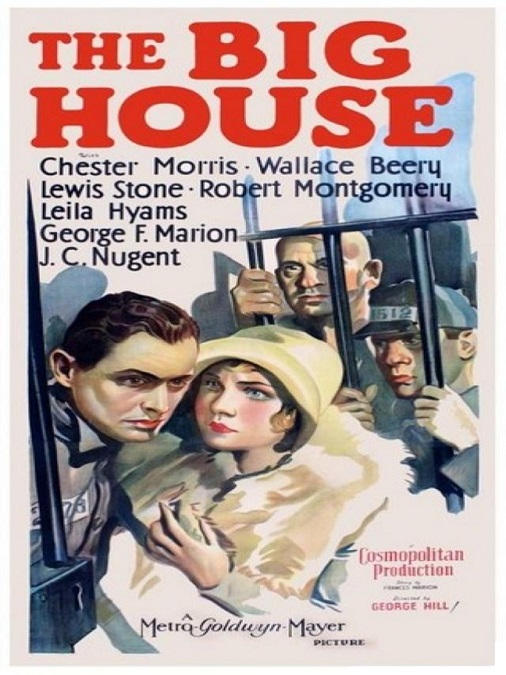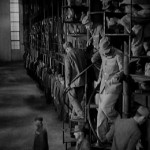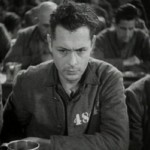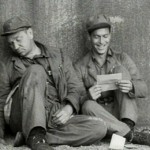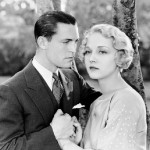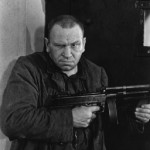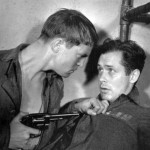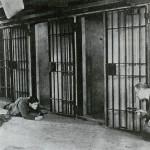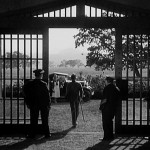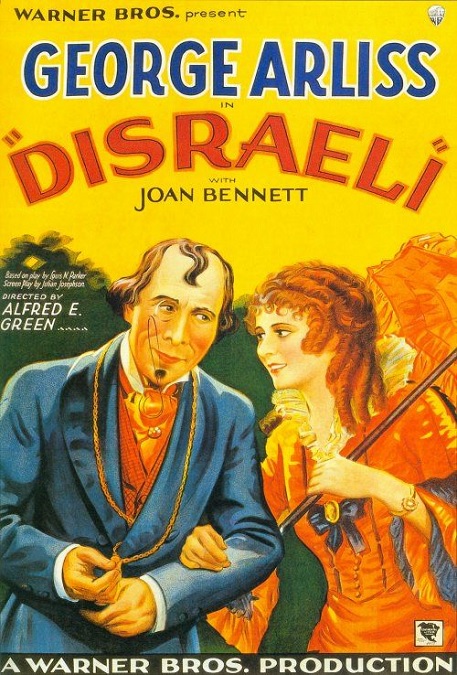

Disraeli – 1929 / 1930
This movie was alright, but no better. The story was interesting enough, but the acting suffered from the era in which the film was made. It was an early example of a talkie, so some of the actors did just fine, while others still used the over-exaggerated movements and facial expressions left over from the silent era. Still others delivered all their lines super slow and took special care to fully enunciate every word, as if they were reciting Shakespeare on a stage. The result was a mix of different acting styles that didn’t really match, making the movie feel disjointed.
But the film did have some distinguishing marks that are worthy of note. For example, the lead actor, George Arliss, played the British Prime Minister of 1874, Benjamin Disraeli. Arliss played the politician in the stage play of the same name. He also played the same character in an earlier silent version of the film in 1921. Arliss also won the Oscar for Best Actor for his efforts. I think his acting was just fine, but his makeup was awful. He stood out among the entire cast, looking as though he was wearing a ton of stage makeup.
The plot is about Disraeli’s key involvement in the British purchase of the Suez Canal in Egypt, an action which secured control of India for England. He did it despite opposition from the House of Commons, the Bank of England, and Russian spies who have their own interests at heart. Of course, being a product of 1930s Hollywood, there was also a romantic subplot that takes place between Disraeli’s beautiful admirer, Clarissa Pevency, played by Joan Bennett, and the unambitious and inexperienced Lord Charles Deeford, played by Anthony Bushell. Not only does Disraeli outsmart everyone in the political and international espionage arena, he also plays matchmaker, ultimately bringing the two young lovers together.
Filling out the cast are several supporting characters. Disraeli’s beloved wife, Lady Beaconsfield, is played by George Arliss’ wife, Florence Arliss. Doris Lloyd, Norman Cannon, and Michael Visocoff, playing the Russian spies, Mrs. Travers, Mr. Foljambe, and Count Brosinov. And finally we have the leader of Disraeli’s opposition, Lord Probert, played by David Torrence.
Now, I liked the use of theatrical sets. The large open spaces gave the film a very open feel. For example, the interior of Disraeli’s office had large and unfurnished spaces, giving the actors plenty of room to move around. The walls went up so high that the ceiling could not be seen, even in the wide angle shots. Actors would enter the room from the foreground, as if they were coming in from off-stage. At times, it was as if a stage production of the play were just being filmed.
I also have to give Doris Lloyd proper credit for her final scene. The entire movie, she was one of the worst culprits of the slow over-enunciated Shakespearean acting that would have been good for a live performance, but which worked poorly for a film. People don’t really speak like that. Half the people in the movie didn’t speak like that. But when Disraeli finally got the best of her, causing her to admit defeat, her little smile and nod of acquiescence before exiting the room was perfectly executed, especially after her show of gloating when she thought she had won.
And that brings me to the end of the movie. I didn’t quite understand why a little subplot about Disraeli’s wife getting sick was included. It came in from left field, and made little sense. So, Disraeli has secured the Suez Canal for England, allowing the Queen to add Empress of India to her list of titles, and he is summoned to meet Victoria. But he very nearly declines the honor because his beloved wife is supposedly deathly ill. He doesn’t want to leave her side, but Lord Probert convinces him that attending to the Queen is more important than his dying wife. So he goes. Fine. But then while he is there, his wife suddenly walks in, fully dressed in her sparkly gown, with her hair expertly coifed to within an inch of its life. Huh?!?! I thought she was on her death bed!
Anyway, after doing my little bit of research, reading a few Wikipedia articles, I thought it interesting to note that in the film, when Disraeli was refused funding to buy the Canal from the Bank of England, he turned to Jewish banker, Sir Hugh Myers, played by Ivan F. Simpson, to fund the purchase. In reality he turned to Lionel de Rothschild, bringing to mind the 1934 Best Picture nominee, The House of Rothschild, in which George Arliss played Nathan Rothschild, father of Lionel.
